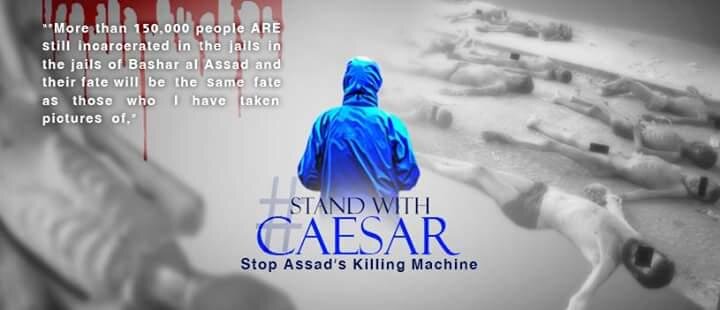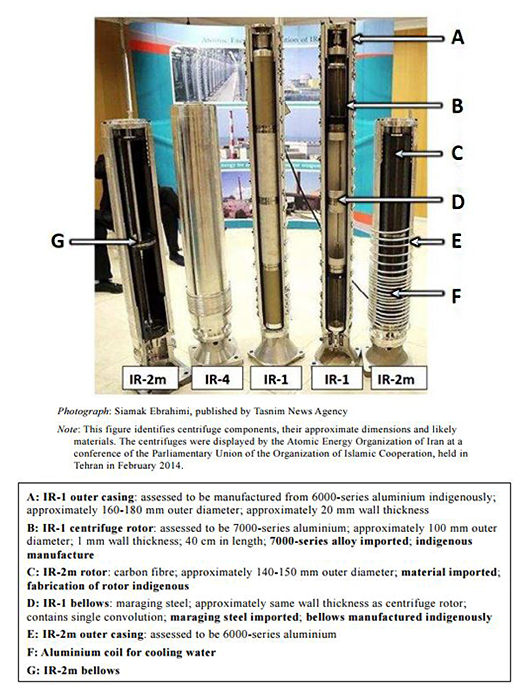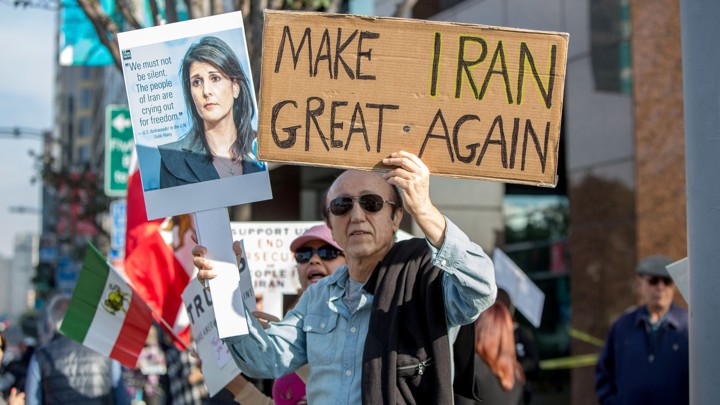America has short memories yet war atrocities continue in Syria. For those that were very skeptical about the use of chemical weapons used in Syria by the Assad regime, here is the truth. Meanwhile. the Assad regime remains in power due to assistance from Russia and Qassim Soleimani was the wartime, military advisor to Assad.

He was once a military photographer in Syria. For two years, he took pictures of the emaciated and mangled corpses left behind by Bashar al Assad’s interrogators. Then he fled to Europe with 55,000 digital images on flash drives hidden in his shoes.
Even members of Congress know him only as Caesar. When he spoke to them for the first time in 2014, he wore sunglasses and a bright blue windbreaker with the hood pulled over his head. No one recorded his voice or took pictures of his face. The Assad regime would assassinate him if it could.
Two days after Christmas, President Trump signed into law the Caesar Act, a tribute to the man whose photographs have proven the war crimes of the Assad regime beyond the shadow of a doubt. When the FBI’s Digital Evidence Laboratory examined Caesar’s work, it found no signs of manipulation.
The bodies in Caesar’s images bear a striking resemblance to the ones in photographs of concentration camps liberated from the Nazis. Fittingly, the U.S. Holocaust Memorial Museum has had a selection of Caesar’s images on display since 2015.
The purpose of the Caesar Act is to put unprecedented economic pressure on the Assad regime. The United States and European Union put some tough sanctions on Mr. Assad and his henchmen in the early days of the war in Syria, but enforcement has been partial.
Whereas existing U.S. sanctions prohibit Americans from doing business with the Assad regime, the Caesar Act authorizes sanctions on the citizens of any country who work with Mr. Assad. The act specifically targets the Iranian militias and Russian mercenaries that have kept the Syrian dictator in power.
Although Moscow and Tehran have secured Mr. Assad’s grip on Damascus and other major cities, the war in Syria is far from over. An estimated 3 million Syrians are now crowded into the northwestern province of Idlib, which remains under the control of a variety of rebel forces, including extremists with ties to al Qaeda. As usual, Mr. Assad and his allies are targeting civilians, not terrorists. Hospitals are especially popular targets.
Thus, the Caesar Act still serves a pressing need. Economic pressure is one of the few means of holding war criminals to account for their actions. Sanctions alone will not bring down the Assad regime, but in concert with diplomatic and military pressure they should be part of any sound strategy.
On Twitter, Mr. Trump has made very clear that his administration is on the side of the Iranian people against their tyrannical regime. He should be equally clear in his support for the people of Syria. One can certainly object that Mr. Trump’s concern for human rights is selective, yet when the president of the United States speaks, the world pays attention. When the world is watching, war criminals hesitate.
The United States is not at war with Mr. Assad, but a U.S.-led coalition now controls about a fourth of Syria, which was formerly part of the ISIS caliphate. Twice now, Mr. Trump has ordered the withdrawal of U.S. troops only to reverse himself under intense pressure from Republicans in Congress. This wavering only emboldens Mr. Assad, who wants to take back the resource-rich areas under the coalition’s control.
In terms of economic pressure, aggressive enforcement of the Caesar Act should be the first priority. Syria remains dependent on illicit shipments of Iranian oil. The Treasury Department has become more aggressive in its pursuit of sanctions evaders, but tankers of Iranian oil are still getting through.
With Russian help, Syria is also trying to revive its phosphate industry, which generated more than $100 million per year of export revenue before the war. Reportedly, Lebanese companies are buying the phosphates before reselling them abroad, likely after processing the raw material into crop fertilizer.
One entity beyond the reach of the Caesar Act is the United Nations, whose humanitarian agencies have been so deferential to the Assad regime that their aid has effectively become a subsidy for Mr. Assad’s war effort. Independent human rights organizations have produced lengthy reports on this travesty year after year, but donor states have not demanded accountability.
This is one area where further congressional action could make a difference. If there is a second Caesar Act, it should condition U.S. funding for U.N. humanitarian work on verifiable reforms. European governments should impose similar conditions.
Caesar demonstrated extraordinary courage by patiently collecting evidence of Mr. Assad’s war crimes. He saw his friends and neighbors among the dead, but he could say nothing. Had his superiors discovered his plans, his corpse would have been the next one in a photograph.
What Caesar deserves is not just a law, but a sustained American commitment to human rights in Syria.
*** From Human Rights Watch: The 86-page report, “If the Dead Could Speak: Mass Deaths and Torture in Syria’s Detention Facilities,” lays out new evidence regarding the authenticity of what are known as the Caesar photographs, identifies a number of the victims, and highlights some of the key causes of death.



 photo Miami Herald
photo Miami Herald photo The Atlantic
photo The Atlantic
